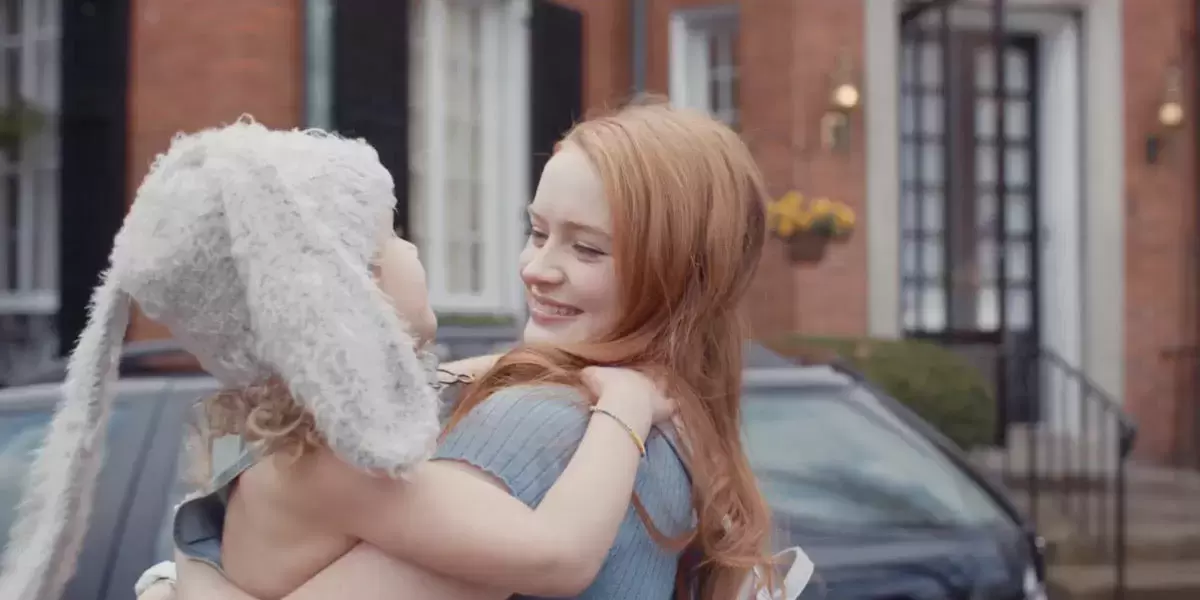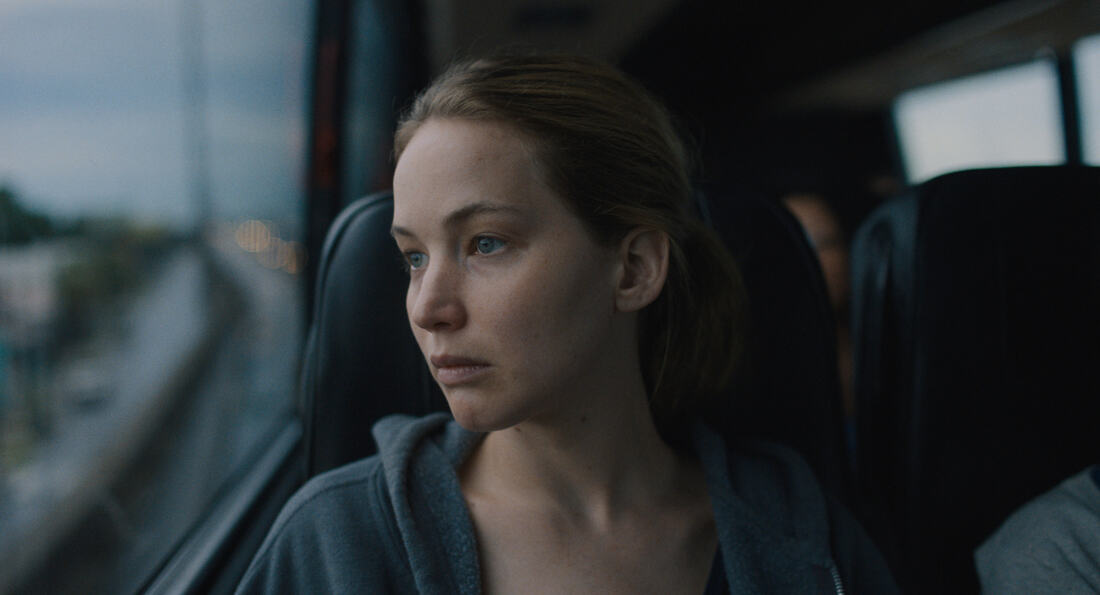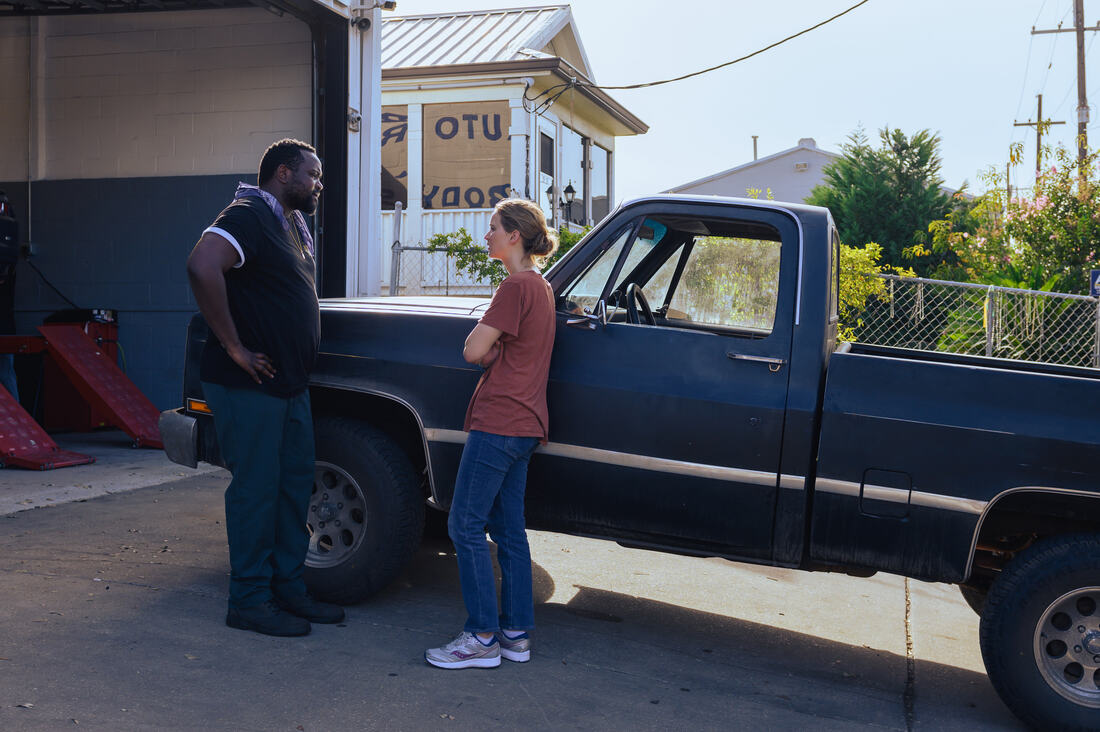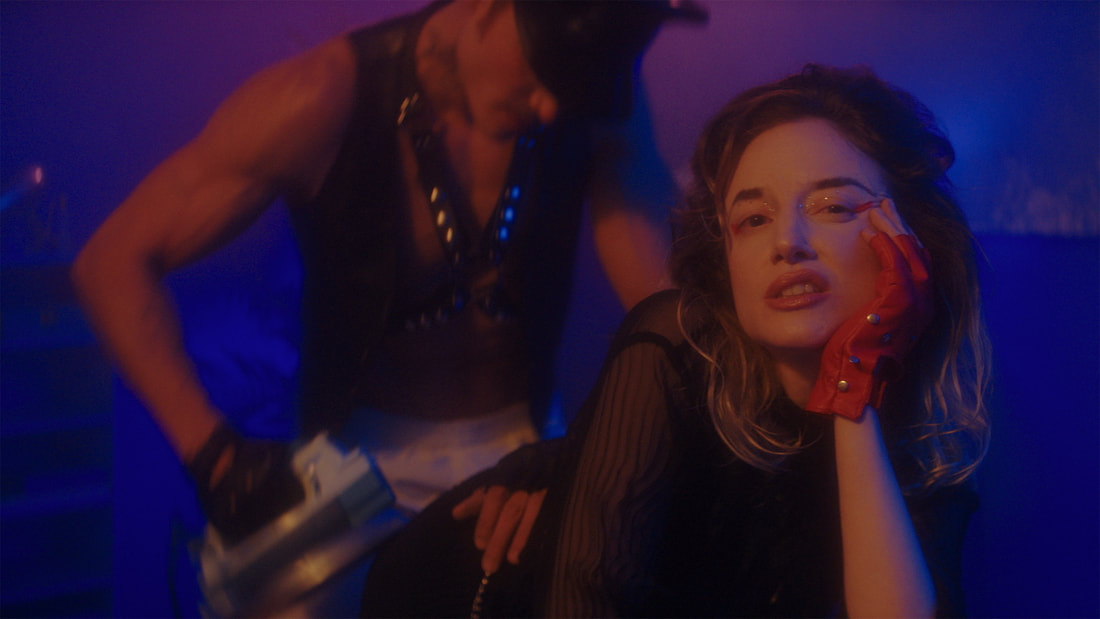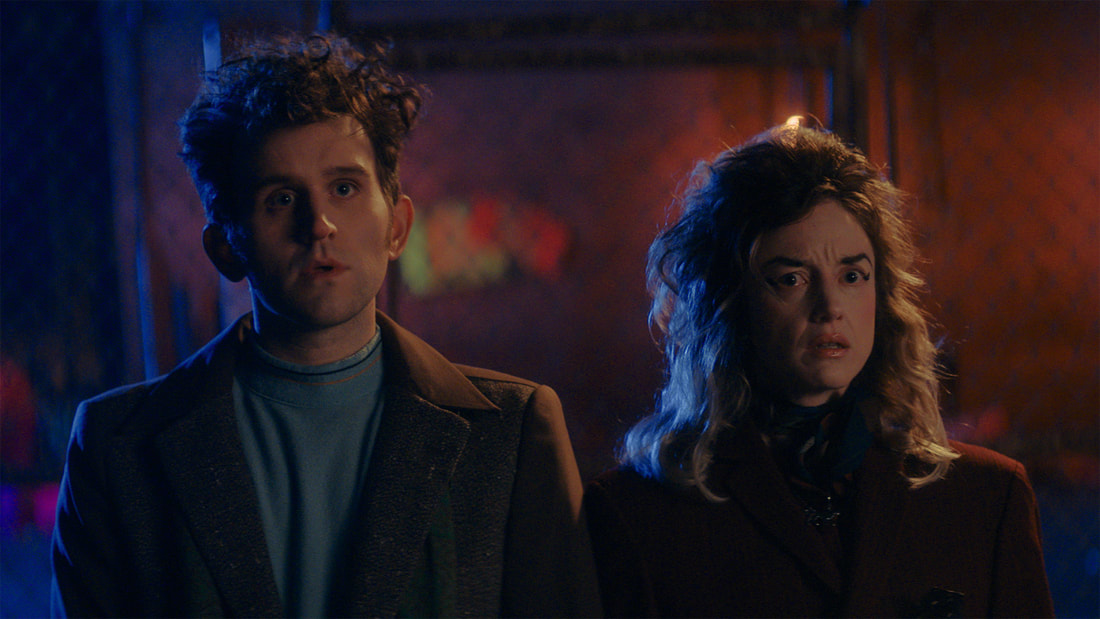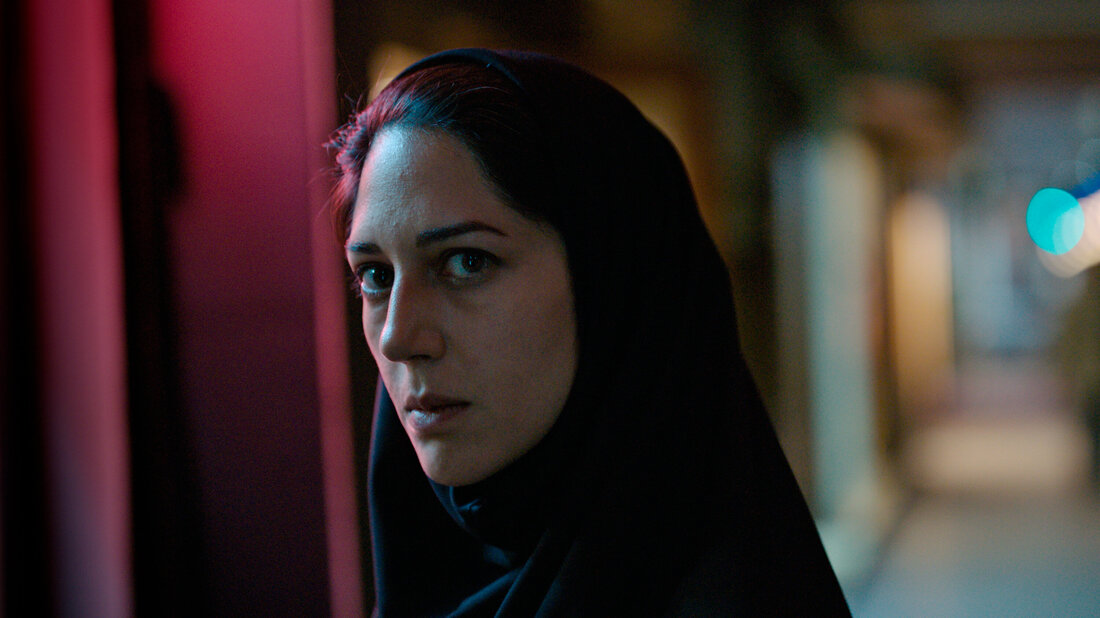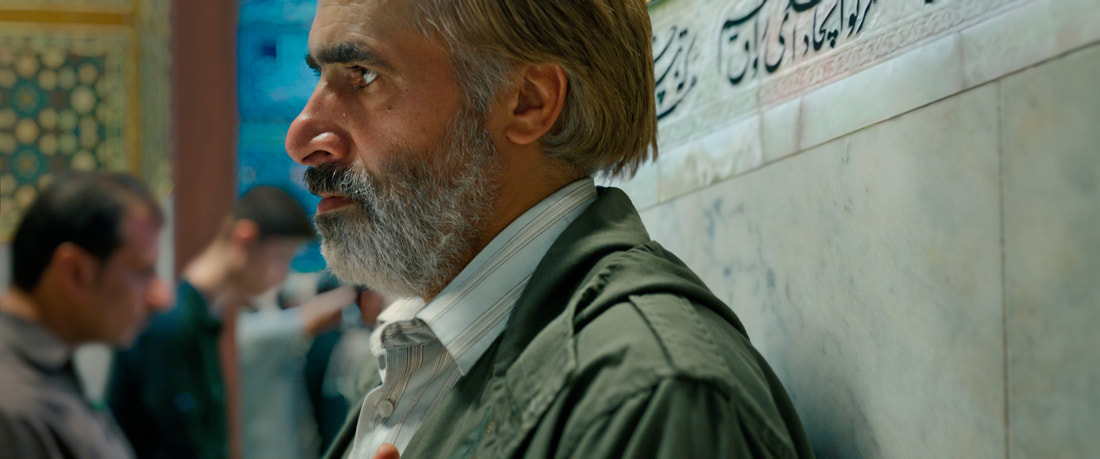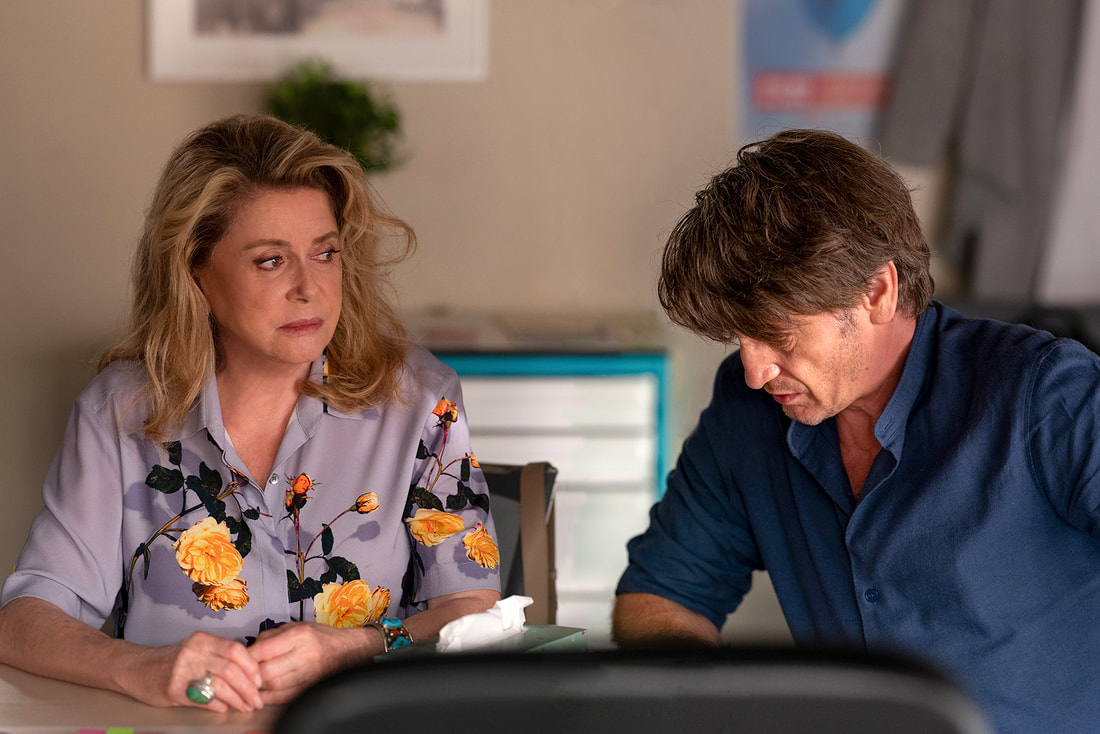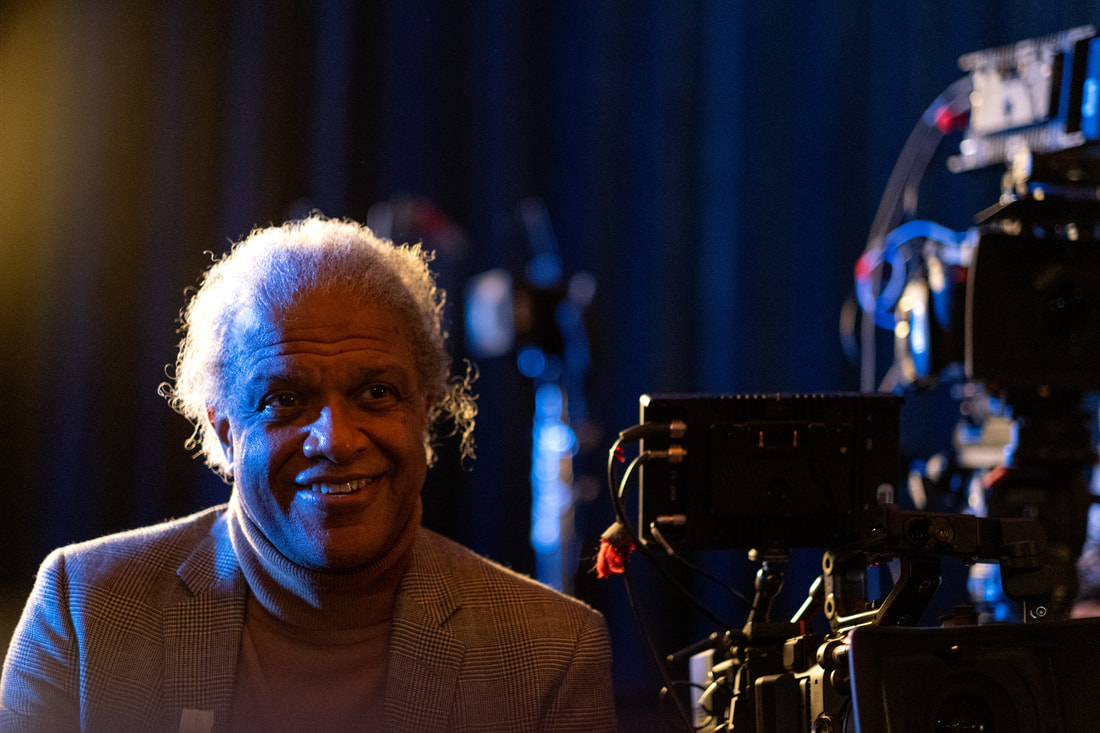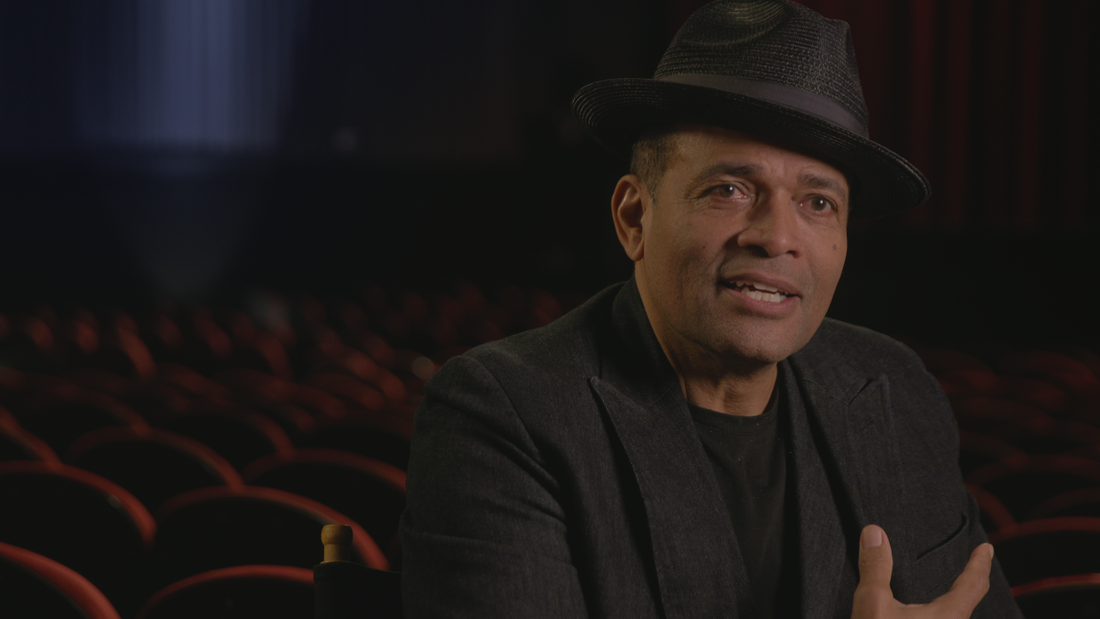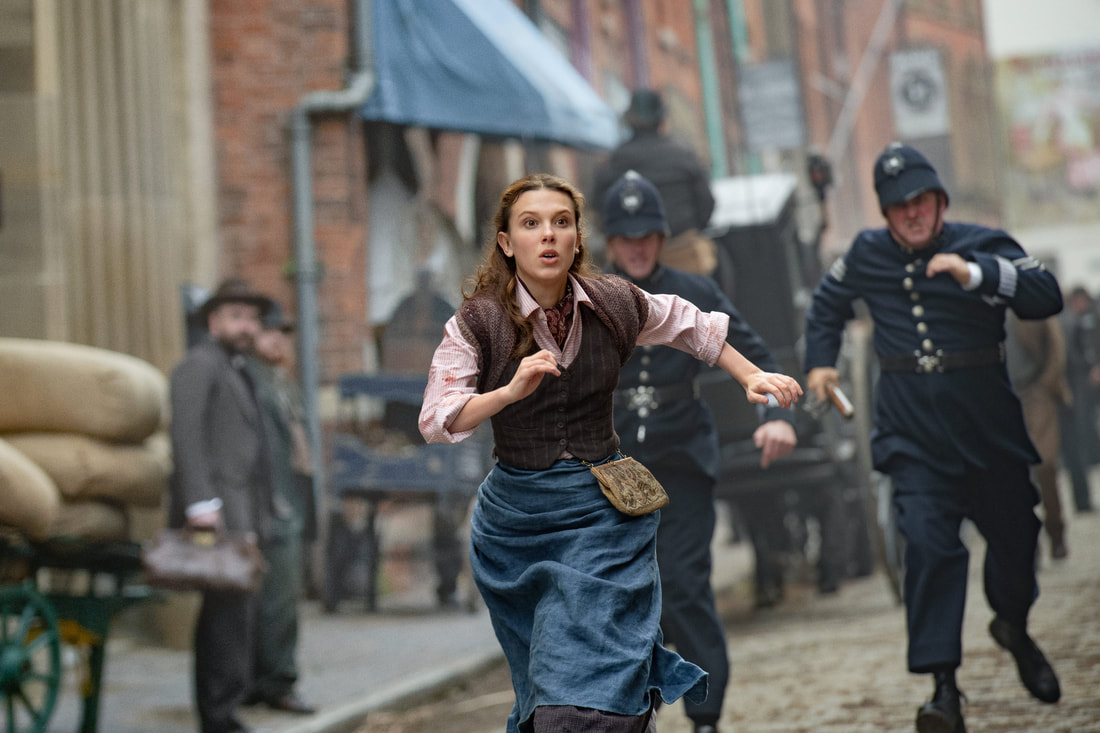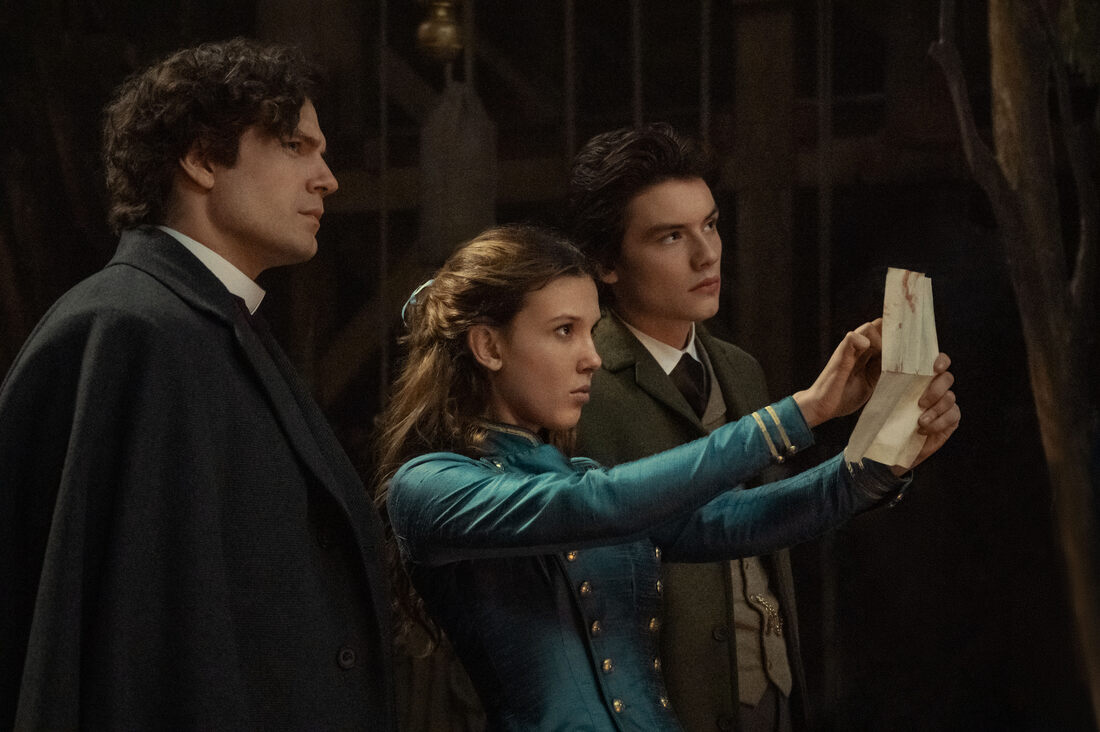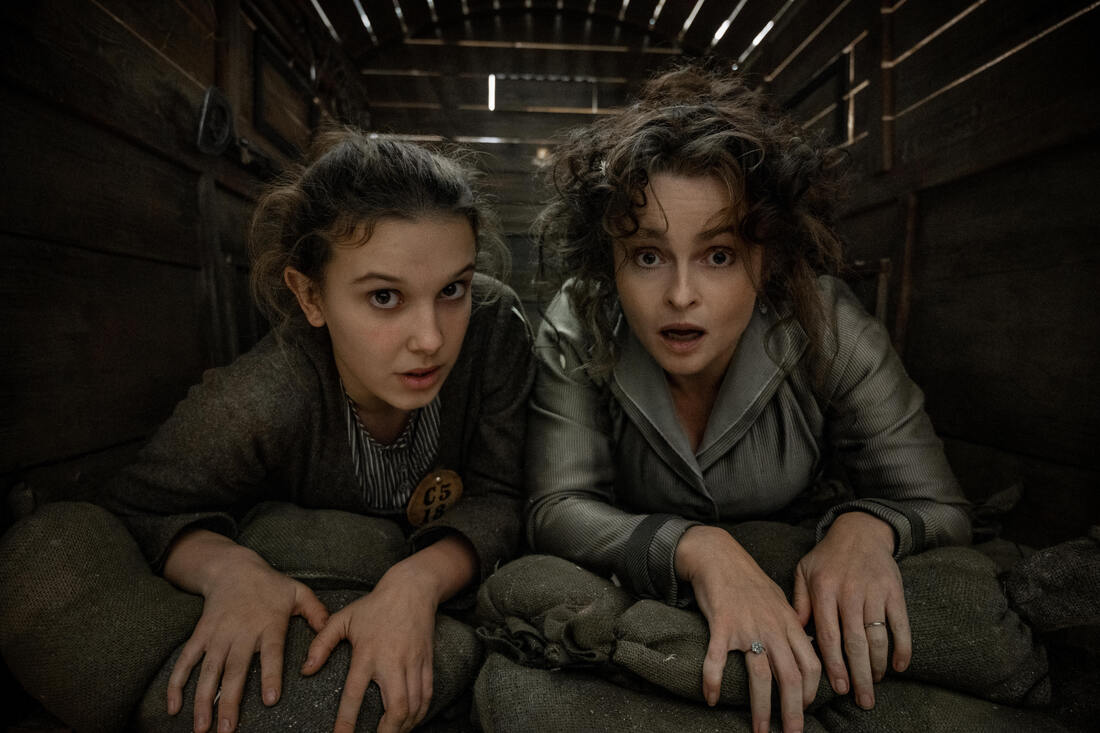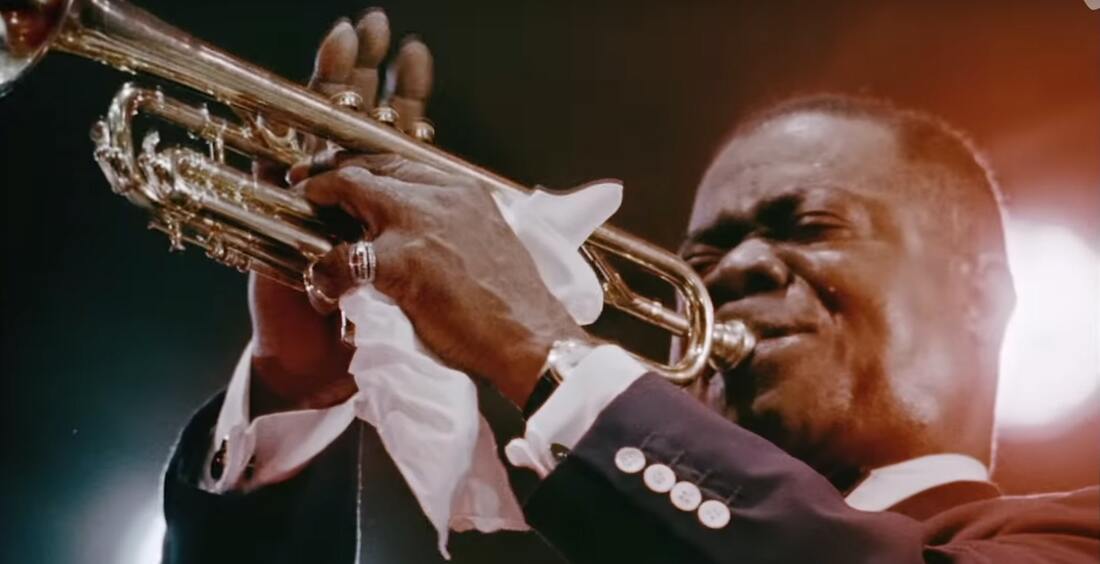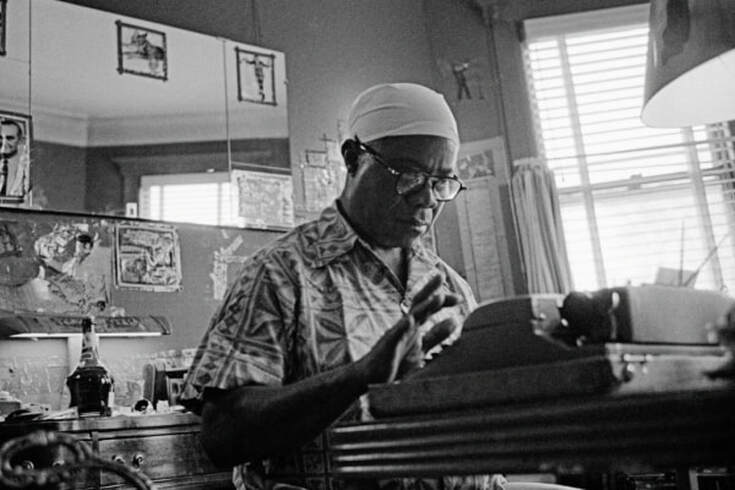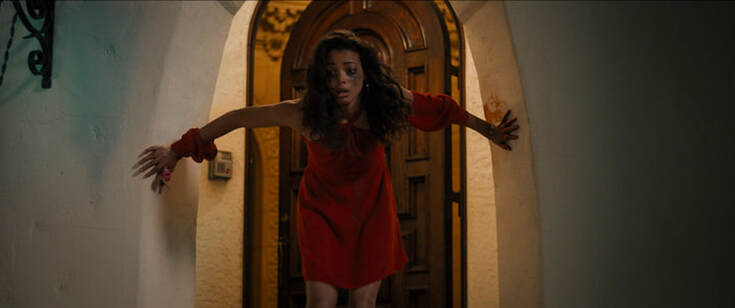|
Review by Cole Groth
Dear Zoe tells the story of a young woman who grapples with her unfortunate reality after the death of her half-sister. Despite a serious attempt from director Gren Wells, this film is a continuous failure of a social issue drama. Starring a less-than-stellar Sadie Sink, Dear Zoe tackles mental health issues with the nuance of a Fifty Shades of Grey movie and a similar level of discomfort from a bizarre amount of eroticism. Unfortunately, a film like this with a great premise gets so bogged down in poor production choices because this otherwise could’ve been a powerful and relevant tale.
From the get-go, the problems of this film are apparent. On 9/11, Tess DeNunzio (Sink) isn’t focused on the terrorist attack on the World Trade Center; she’s viewing the attack on a TV at the hospital where her family has rushed off after her little sister was struck and killed by a car. The gravity of her situation feels less emotional for the viewer because the look of the film is so distracting. Every shot has flat lighting, and Sink has been plastered with makeup that seems so unprofessional that it is almost laughable. Tess’s voiceover is so overbearing and sappy that it feels like an angsty teenager wrote it. Well, I suppose that’s the exact perspective we’re supposed to get, but there’s a chasm between realism and this script. While in middle school, I co-wrote, directed, and edited a film about a girl writing to her recently deceased best friend. Since the entire short film was narrated through a letter written by the leading girl, it sounded very similar to the narration given by Tess. The difference between these two films is that two hormonal 13-year-olds wrote one, and professional writers wrote the other with experience in Hollywood. Sadie Sink has shown incredible promise as an actress in Stranger Things and the Fear Street trilogy, and it seems like she’s most comfortable with acting in period pieces. As is tradition, this outing for her takes us back to 2001 for no real reason. 2000s nostalgia is going to be pretty big soon, and it’s unclear why Wells doesn’t lean into this. This film is centered on 9/11, but… why? Nothing looks like it took place in 2001; The closest indicator is that Tess wants to name a dog she’s trying to sell after the late Colin Powell. It’s endlessly confusing and only adds to my belief that this is one of the weakest scripts of Sink’s career. She’s demonstrated her range previously, which makes her bafflingly bad scenes stand out more than they would for a less talented actress. The rest of the cast is either forgettable enough to escape criticism or similarly weak.
It’s hard to stress just how bad this script was. Marc Lhormer and Melissa Martin’s horrific screenplay jumps around from unconnected family issues to finding love to dealing with grief at an erratic pace; 94 minutes is not enough to explore any of these things, and it’s easy to tell that this was based on a book, which was probably loads better because it had time to develop Tess’s character thoroughly. By the end, there are a lot of unresolved plots, one of them being Tess’s mom (Elly Gladstone) flirting with Tess’s romantic interest. Moments like these are bizarre and uncomfortable, none of which are as painful as the heavily erotic moments between Tess and her later love interest (Kweku Collins).
While trying to find solace in her grief, Tess befriends her bad boy Jimmy Freeze neighbor. Tess is a 16-year-old, which makes her relationship with Jimmy, who’s in his early twenties, all the creepier. Each scene of their budding romance is progressively more uncomfortable to watch, and it all feels unnatural. By the end, Sink and Collins have enough chemistry to bridge the disquieting nature of their relationship, but it’s just a poor decision from everybody involved. Her relationship with her family isn't much better. For some reason, her mom and stepdad aren't focused on at all, and her dad takes the spotlight far too much. None of her interactions are very natural, and once again, it's not in a realistic way. It's just bad. There’s something that feels so wasted in Dear Zoe. Perhaps it’s the talent of a brilliant up-and-coming actress in Sadie Sink; it could be the lack of actual relevance within the period it takes place; the horrific lighting and cinematography don’t help either. Most of all, the potentially powerful story of how a young woman deals with grief is squandered. Tess DeNunzio’s story was meant for literature because a film doesn’t do it justice, or at least, a movie of this sheer incompetence couldn’t have done it justice. What an unfortunate misfire. Dear Zoe premieres on VOD starting November 4. Rating: 1.5/5
4 Comments
Review by Dan Skip Allen
Jennifer Lawrence had the most meteoric rise I've seen of any recent movie star in Hollywood. When she popped on the scene with a gritty and raw performance in Winter's Bone, she caught everyone's eye, including producers and casting directors in Hollywood. She jumped on a couple of big franchises and every good role she could find until, finally, she was burnt out from Hollywood and being a big star. She took some time off and is now back in Causeway, an A24 and Apple Original film.
Lynsey (Jennifer Lawrence) is a US Soldier recovering from a traumatic experience in Afghanistan during her time over there. She returns home to New Orleans, where she grew up, to try to regain her mind and body from what happened to her. She moves in with her mother and finds a job as a pool cleaner. While getting her life back together, she meets a man named James (Brian Tyree Henry, Eternals), who has his own traumatic experience in his past. This film is a two-hander with the friendship between Lawrence and Henry's characters at the forefront of the movie. There are a couple of supporting roles for Jayne Houdyshell as a caregiver of Lawrence's character at the beginning of the film, Linda Emond as Lawrence's character's mother, and Stephen McKinley as Dr. Lucas, the man who has the future of Lawrence's character in his hands. Most of the cast does a good job in this movie with an important story.
That being said, Lila Neugebauer, the director, doesn't do anything too dramatic with this story or its characters. She keeps the film and story a little too subtle, whereas other movies about a similar subject matter are depicted more dramatically. Lawrence showed in her award-winning performance in Silver Linings Playbook that she is capable of better in her career. She usually brings drama to all the characters she plays. This time, she's just too quiet and generic, and it doesn't do the role much justice. Henry is pretty strong in his role, though.
Causeway wants to say a lot about PTSD, and it falls short of that. It just doesn't bring the heat where it is needed. Lawrence seems like she's going through the paces in this role. She's capable of so much more. The director couldn't get anything out of her in this role. She might as well have stayed on the bench if this is going to be what she gives audiences. This should have been a powerful performance, and it's not, and the film as a whole fails because of that. Even Henry couldn't save it with his performance. Without Lawrence's full commitment, this film failed to hit the dramatic moments it needed to be effective as a good piece of cinema. Causeway is now in theaters and hits Apple TV+ on November 4. Rating: 2/5
Review by Sean Boelman
Please Baby Please is one of the two films made this year by Amanda Kramer, and this double feature proves that she clearly has an intriguing voice as a filmmaker. A complex, dense movie that would be served by repeat viewings, Please Baby Please is downright bizarre, but in a way that never ceases to surprise or entertain.
The movie follows two newlyweds who cross paths with an unusual greaser gang that ends up challenging their perception of sexual and gender identity. The film is just as bizarre and idiosyncratic as the premise sounds, but you would be hard-pressed to find a movie that has a more distinctive directorial vision. The film’s narrative structure is very loose and experimental, which may put off some viewers, but it’s also very surreal and trance-like in a way that is quite alluring. Although all of the scenes are tied together in a thematic sense, the narrative connection can be a bit loose at times in a way that makes it unfriendly to general audiences. That said, the vibes in this movie are absolutely immaculate. The production design and costume design are on-point, feeling perfectly ‘50s while also feeling minimalistic. It’s the perfect type of retro film — feeling like a perfect homage to the era without ever coming across as cloyingly nostalgic.
Kramer and her co-writer Noel David Taylor certainly are not subtle with the themes they explore, but that doesn’t make the movie any less important. Many films explore the ideas of sexuality and gender, but few manage to be as blunt as Please Baby Please while still being thoroughly effective.
The movie has two powerhouse leads in Amanda Riseborough and Harry Melling, and they both turn in performances that can certainly be considered career-bests. Both have very complex characters who evolve over the course of the film, requiring a great deal of emotion and range. Demi Moore also shows up in the supporting cast, but her presence is not as commanding. The opening sequence certainly resembles West Side Story, and there are certainly many beats that are reminiscent of the classic musical. In a way, Kramer’s movie almost feels like West Side Story if Anybodys were the lead character. That said, the musical aspects of the film are minimal and it's more a stylistic similarity than anything else. Please Baby Please is the type of movie that deserves to be seen, if only because it is entirely unique and creative. It offers a distinct take on both its genre and its themes, making it an absolute stand-out. Please Baby Please is now playing in theaters. Rating: 4/5 Review by Joseph Fayed The film Holy Spider has been in the headlines since its premiere at Cannes in May. While Zar Amir Ebrahimi won the best actress award at Cannes for her stellar performance, the nation of Iran considered it insulting and politically motivated. Based on a true story, the film certainly tries to shine a light on how society can enable a serial killer. The film follows Rahimi (Zar Amir Ebrahimi), who goes to Mashhad, Iran to investigate a series of murders of sex workers throughout the city. Her efforts to investigate further are often halted by the police, who do not take the murders seriously enough, primarily due to the victims being sex workers. We also cut back and forth between Rahimi and our killer, Saeed (Mehdi Bajestani), a family man by day and the spider killer by night. Director Ali Abbasi does not hesitate to show the plight of the situations these women faced in real life. The first 10 minutes, in particular, take you through the notions of one of Saeed's victims. Surprisingly, It does not dwell too much on the unglamorous side of sex work (despite the circumstances), nor should it have to. The emphasis is on how these women were preyed on and how the sheer thought of sex was used against them. The film does devote time to those who surround Rahimi and Saeed. In the film's first half, Rahimi's backstory is expanded and sets out her motivations for coming to Mashhad. Her emotional being and questioning of the faulty police investigation surrounding her. This takes the backburner in the second half, which mainly focuses on how Saeed thought his killings were morally cleansing the world. This represents the shift in focus from how Saeed could commit so many murders to why Saeed did so.
The last third of the film is the messiest part of it all. A lot is on the table in the final 40 minutes that may draw upon the liberty of true events, but it draws upon secondary characters who mostly served as unimportant compared to our two main characters. Thankfully, our attention on Saeed and Rahimi amplifies the message the film is trying to get across: how do we handle deep-rooted misogyny? Holy Spider has been described by its director as not a film about a serial killer but about a serial killer society. When told through its two leading perspectives, that feels truthful. This well-paced thriller certainly has chilling moments that will leave you disturbed, just like the true story would. Holy Spider is now in theaters. Rating: 4/5
Review by Dan Skip Allen
There have been many films dealing with the illness of a family member or loved one, and Emmanuelle Bercot's Peaceful is another such film. It's a pretty straightforward drama about a sick man, but it's strong enough to be worth your time.
Benjamin (Benoit Magimel) is a 39-year-old acting teacher who tries to get the most out of his students. Unbeknownst to his students, he has been diagnosed with stage 4 pancreatic cancer. His mother (Catherine Deneuve) worries that he hasn't taken his diagnosis seriously. She gets him to see a specialist, Dr. Eddie (Gabriel A Sara). He has some unusual methods of doctoring, but in the end, he does his job perfectly regarding how he prepares his terminally ill patients for what they need to be ready for with these types of illnesses. The director Bercot handles this subject matter very well. What could have been a very melodramatic story turns out to be a very touching film about a sick man, his mother, and the physicians trying to help him get better. The acting she gets from her cast is very good all-around. Cecile De France also turns in a strong performance as a nurse who gives the main character some much-needed comfort during a hard time for him and his mother.
A plot device in this movie that is very well used is that the film spanned a year in time, and as that time went by, so did the seasons. This man's illness scanned this amount of time, and during these months, we, as the viewer, see how his illness digresses. Which in turn makes him look worse and worse. Even when a blood transfusion is needed, he doesn't get better.
Deneuve is a world-renowned actress here and abroad. She can do anything when it comes to acting. Roles in Bel De Jour, The Umbrellas of Cherbourg, and The Hunger prove she can do it all. She has a difficult task in this film because she is not the main character, but she has to come across as sympathetic to what her son is going through. Deneuve has a lot of heavy lifting in this movie, even though it's not about her. She is the epitome of a concerned mother in this film. Peaceful is an aptly named film. It has a quietness despite its subject matter. It is a very somber film with a sad score that accompanies it. The director uses kid gloves when she deals with this subject matter. We aren't far removed from a pandemic in which many people died. So if this is going to be done right, you have to be careful, and she is with every aspect of it. Peaceful is now playing in theaters. Rating: 3.5/5 Review by Camden Ferrell Hong Sangsoo is an acclaimed Korean director who is known for his minimalistic style and commitment to cinematic realism. His newest movie, The Novelist’s Film, had its premiere at the 2022 Berlin International Film Festival and has played in festivals worldwide since. A simplistic black and white feature, this is a movie that finds some authenticity and beauty in its numerous human interactions. Junhee is a novelist who takes a trip to a bookstore among other locations where she interacts with people from her life. She also meets Kilsoo, an actress that Jun-hee tries to recruit to make a movie with. Its premise is as simple as it can be, and it allows the film to freely explore human interaction and chance encounter through an intimate lens. Written by Hong Sangsoo, this film has an incredible natural feel. The story is told almost entirely through dialogue, and it does a great job of being authentic without feeling boring. He has an interesting way of framing mundanity in a way that is captivating to watch. While he is credited as the writer, it’s hard to imagine that there’s no spontaneity and true realism from the actors, but I guess the fact that it’s hard to tell makes this all the more interesting. The movie is full of subdued and natural performances that match the overall feel of the movie. Lee Hye-yeong leads the movie as Junhee, and Kim Min-hee co-stars as Kilsoo. They both are great at feeling fully natural, blending into the domestic settings throughout the movie. They are never flashy or dramatic in their performances, and this contributes to the realism the movie is going for.
The simple cinematography, consisting mostly of static long takes, works incredibly well within the film. It’s as minimal as it is captivating. Something about the way he frames his subjects is inherently interesting, and it helps us see the beauty of the interactions these people are having. The movie also tackles some interesting themes of artistic authenticity and integrity that are interesting even if they aren’t always focused on as often as I’d like. The Novelist’s Film will please fans of Hong Sangsoo and his sensibilities. General audiences might find its pace too slow, but there might still be something for everyone to enjoy in its simple premise and execution. A slow but realistic examination of chance encounters and timely artistic themes, this movie will captivate you in unexpected ways. The Novelist’s Film is in theaters October 28. Rating: 4/5
Review by Sean Boelman
Taking its title from a revolutionary cry echoed throughout the 1970 film Cotton Comes to Harlem, Is That Black Enough For You?!? is the definitive documentary about African-American cinema. A must-watch for any cinephile, it may feel a bit like a lecture — but it is the most engrossing lecture you will ever watch.
In the documentary, film critic and scholar Elvis Mitchell examines the history of Black cinema with a particular focus of its “golden era” in the 1970s, when movies featuring Black protagonists broke into the mainstream. Any cinephile worth their weight is familiar with the Black cinema of this era, but Mitchell’s film is so exhaustive that you are sure to learn something nonetheless. The movie certainly has a wealth of interviews to pull from, likely thanks to Mitchell’s pull as one of the foremost film critics and scholars in the country. Although many of the filmmakers who were most active during the era are sadly no longer with us, Mitchell interviews many of their children, as well as people who worked with them or were influenced by them. Any great cinematic essay features extensive use of clips from the films being discussed, and that is a highlight of this movie. From the mainstream to the more obscure, Mitchell has managed to pull clips together from several notable pieces of Black cinema history, making a portrait that feels comprehensive even if it couldn’t possibly mention every single important film.
One of the things about Mitchell’s approach to Is That Black Enough For You?!? is that it dives much deeper than usual into the world of cinema. Of course, Mitchell does talk about the seminal classics like Shaft, Sweet Sweetback’s Badasssss Song, and They Call Me Mister Tibbs!, but he spends more time discussing the less-recognized but still important movies that have largely been lost to the annals of history.
While the documentary is, first and foremost, an exploration of cinematic history, Mitchell clearly understands and is fascinated with the social aspect of cinema. Many scholars look at art — particularly cinema — as a reflection of the time in which it is made, and Mitchell uses these quintessential Black films to paint a picture of American society in the 1970s as it pertained to the African-American community. However, Mitchell treads the line nicely, not taking himself too seriously. Even though these movies are important artifacts that represent the time in which they were made, they are also a wonderful form of entertainment. Mitchell’s connection to the films he mentions is obvious, as he discusses the impact they had on him as an African-American teenage cinephile, growing up and watching them. Is That Black Enough For You?!? absolutely knocks it out of the park as a cinematic essay, exploring film history in a way that is both meaningful and entertaining. It should come as no surprise given how talented of a critic Elvis Mitchell is, but this is maybe one of the best films about film ever made. Is That Black Enough For You?!? streams on Netflix beginning November 11. Rating: 4.5/5
Review by Cole Groth
Initially scheduled for a theatrical release by Warner Bros., Enola Holmes was purchased by Netflix in 2020 and became a massive success for the streamer, receiving rave reviews from critics and an astonishing 76 million views in the first month of release. In the sink-or-swim theatrical market and the disastrous management of Warner Bros., it’s safe to say that Netflix’s purchase of the film was a brilliant decision because now they’ve got a lucrative franchise for rising star Millie Bobby Brown. The sequel, Enola Holmes 2, continues the story of Sherlock Holmes’s sister in an epic fashion. It’s fun, epic, hilarious, and an all-around fantastic adventure worthy of the Holmes title.
Without skipping a beat, we’re presented with Enola in medias res running from the police. She’s gotten herself into trouble again, and we, indeed, won’t be seeing this for the last time. This time around, Enola has been recruited to help a group of orphaned girls with finding one of their sisters, who has gone missing under nefarious circumstances. While investigating the mystery, she must go undercover in a match-making factory run by a few rather generic rich male villains. Over the next 129 minutes, Enola takes us on a twisty adventure full of wild chases, well-choreographed fight sequences, and love. It’s a journey that’s as much fun to follow along with as it is easily accessible. It’s hard not to fall in love with this film.
The excitement of the first few minutes sets the tone for a refreshingly fast-paced yet grand mystery. Reprising her role as the titular character is a never-better Millie Bobby Brown. She maintains all the confidence of her character from the last film with a more emotional side than before. She’s funnier, smarter, and more exciting than before, just like the rest of the movie. Instead of simply playing Enola, she effortlessly becomes her. Little moments of concentration, short glances, or other mannerisms make Enola feel like a real-life person, making her more fun to follow than previously. Henry Cavill is back as Sherlock Holmes, and his much-expanded role gives him a much stronger sense of agency this time. Since the last film established Enola as the lead, he’s now more critical, and his relationship with Enola is brilliant. Brown and Cavill have great chemistry, and seeing the two banter back and forth is hilariously realistic.
While not quite as prominent as before, Louis Partridge’s Viscount Tewkesbury plays a significant role in this film. Like before, he’s an excellent romantic partner for Enola. Instead of being the driving factor in her escapades, they work together to solve the mystery, although it takes some time for them to restart their relationship (which had fallen off between the two films). David Thewlis is introduced as a delightfully twisted police chief, supported by a hilarious Lestrade (Adeel Akhtar). Helena Bonham Carter’s Eudoria Holmes is reduced to only a few short scenes, which makes her one of the only disappointing characters in the film. The excellent blend of mystery, action, and comedy makes this film so much fun. At its core, this is a Holmes film, meaning every plot twist must be carefully crafted. Jack Thorne’s script ensures this. It’s exciting to follow along and try to guess what’s going to happen next; while I wasn’t blown away by most plot twists, they’re still very clever, and a few are incredibly surprising. The action is very well-choreographed, too. Each chase sequence is carefully planned out and fun to watch, although a few stray shots of bad green screen prove somewhat distracting.
Additionally, this is a hilarious film. Enola is the primary driver of the humor and almost all of her jokes land. Her and Tewkesbury’s relationship stands out as one of the funnier relationships, although Sherlock’s interactions with her are just as amusing. The character development is one of the most vital elements throughout. Since we’re given over two hours to explore every character, it’s essential that they all feel genuine. Most people are given moments to shine on their own, and they have plenty of charisma and enthusiasm to maintain the light and humorous tone of the film.
While on her journey, Sherlock finds himself trailing her as he pieces together a larger mystery. It’s fun to see what his findings set up for the franchise’s future, and it’s nice to see him given more prominent standing in this film. Although Enola proves to be an excellent detective, it’s nice to see that director Henry Bradbeer respects Sherlock’s legacy. It’s a breath of fresh air to see a modern take on a franchise that respects the qualities that made it so beloved by past generations. With some care, the Enola Holmes franchise could be a serious hit. By all accounts, Enola Holmes 2 is a success. It’s a brilliantly exciting film that improves on the few weak points of the first film. There’s not too much reason for this to push over two hours, but there’s at least enough breadth in the story to feel continually satisfying. It has all the makings of a modern classic. Families will love this for the humor, film fans will love it for the adventure, and Sherlock Holmes fans will love it for the mystery. This is a film for everybody, and Netflix would be wise to greenlight a sequel as soon as they can. Enola Holmes 2 premieres on Netflix starting November 4th. Rating: 4.5/5 Review by Tatiana Miranda Two years ago, Apple TV+ released their acclaimed documentary on the Beastie Boys, and now the streaming service returns with another stellar music documentary, Louis Armstrong's Black & Blues. This documentary by Sacha Jenkins helps contextualize Armstrong's music and fame, which is especially crucial since very few of the documentary's viewers are unlikely to have lived during his prime. From recorded radio and television interviews, newspaper clippings, and Armstrong's own writings, Jenkins manages to paint a detailed picture of Armstrong with only artifacts since he passed over fifty years ago. Due to Jenkins' creativity in the layout and execution of the documentary, Black & Blues is representative of Louis Armstrong's vibrant personality that casual fans or listeners may not be familiar with. Through his writing, his literal voice from private recordings and interviews, and his music, Louis Armstrong's personal history of growing up in the early 20th century and the overall racial climate of the time is exhibited in Black & Blues. Growing up poor in New Orleans, he recounts the food his mom made out of scraps and his job selling coal in the red-light district. While some of these tidbits might come across as unnecessary "fun facts" about the famous singer and trumpet player, they help contextualize his music and journey as a musician. As he states in one recording, Armstrong was first introduced to the power of jazz by the musicians playing in cabarets and around the red-light district. Even as he gained worldwide acclaim, playing sold-out shows and becoming a household name, Armstrong still faced the racial prejudice that was extremely prevalent at the time. One big subject of the documentary is Armstrong's stance on segregation and the civil rights movement. While he might have never outwardly criticized it, his actions, such as requiring usually segregated hotels and other venues to allow him to stay at them if he was to perform, made it known that he did experience prejudice and wasn't going to let it slide. With his fame and influence, he made strides in terms of representation, as he starred in films such as The Glenn Miller Story and Hello, Dolly! Although Armstrong made a huge impact on both the music industry and African-American history, there are still plenty of criticisms regarding his stance on social justice issues and general happy-go-lucky attitude. Black & Blues doesn't hide these critiques but instead exhibits them and adds background information. For example, as Armstrong's wife states in an interview, one of the main reasons Armstrong never openly discussed the civil rights movement is because he knew that his words had weight but that he was just a musician, and that's what he did best. In an age of "cancel culture" and heavy criticisms of celebrities, Armstrong is a perfect example of a public figure whose stance on issues wasn't necessarily black-or-white but complicated and full of nuance that Jenkins masterfully displays.
An insight into Louis Armstrong's life and musical accomplishments, Louis Armstrong's Black & Blues is a feat in the music documentary genre. With Jenkins' jazz-like documentary format that doesn't stick to one beat, mixing timelines and concepts with one another, this documentary is sure to wow both long-time Armstrong lovers and those just now getting familiar with his work. Louis Armstrong's Black & Blues is released on October 28 on Apple TV+. Rating: 4/5
Review by Sean Boelman
Films that sit on the shelf for multiple years after their debut typically aren’t very good, but horror fans were ready to give the benefit of the doubt to Run Sweetheart Run because it seemed like the cause of the delay may have been pandemic-related. Although that is undoubtedly part of the cause, it seems like the bigger issue is that they didn’t know what to do with this insane (and insanely stupid) genre flick.
The movie follows an ambitious young woman whose blind date with a wealthy client of her law firm goes awry, sending her on a brutal quest to survive the night. This could have been a simple survival thriller with a social edge, but there are so many twists — many of which don’t add up to anything logical — that it will leave viewers more confused than entertained. The pacing of the film is certainly aggressive. After a brief introduction to establish the characters and situation, the movie literally gets running. Once it hits its rhythm around the thirty minute mark, it doesn’t let up. While it should be thoroughly entertaining, the viewer will keep getting distracted by some baffling decisions made by the script and filmmaker. One of the most irredeemable things about the movie is that it is nonsensical and lacks consistency. As soon as you think you understand what’s going on, the film changes and the story becomes something entirely different. Unfortunately, this seems to be the result of supposedly extensive reshoots that the movie has had since its debut at Sundance in 2020.
However, even if you can get past the fact that nothing makes sense or comes together in a satisfying way, you are sure to be put off by the script’s clunky metaphors. There is a literal plot point about the antagonist being able to smell the protagonist’s menstruation, and while it was intended as something to be feminist, the way it’s executed is embarrassingly clumsy.
It’s a shame, because Ella Balinska and Pilou Asbæk both do a solid job in their roles despite being given horrid dialogue to work with. Asbæk, in particular, overcomes the limitations of the script, giving a performance that is genuinely menacing despite the fact that almost everything he is being asked to do is genuinely goofy. Director Shana Feste does give the film a solid retro vibe, but a fun score and some cool cinematography are not enough to maintain tension when the script is so frequently tumbling over itself. That said, there are some artistic decisions that simply do not work, like the use of on-screen text in moments of high tension that just says “RUN!” It’s unnecessary, and adds nothing to the atmosphere or story. The first twenty minutes of Run Sweetheart Run show the potential it has to be an intriguing and important thriller, but it goes off the rails for the remainder of its runtime. It’s unclear whether the reshoots made the movie more or less bizarre, but whatever the case, the result is absolutely bonkers — and not a good way. Run Sweetheart Run streams on Prime Video beginning October 28. Rating: 2/5 |
Archives
April 2024
Authors
All
|
|
|
disappointment media
Dedicated to unique and diverse perspectives on cinema! |

